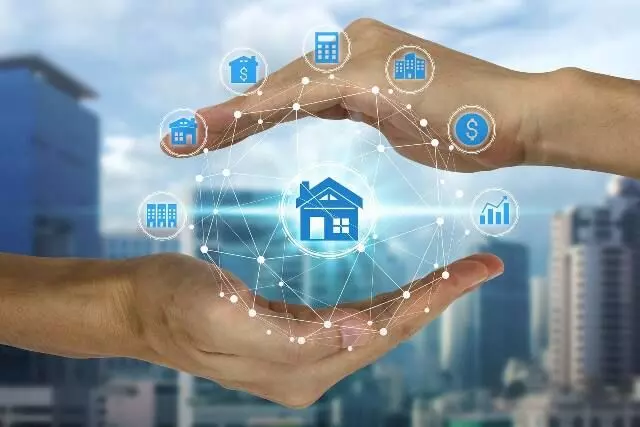A Year-End Look at Technological Innovations in Real Estate

A Year-End Look at Technological Innovations in Real Estate
From artificial intelligence (AI) that streamlines data processing to smart home systems that offer exceptional convenience, the integration of revolutionary technologies has established new industry norms.
In the contemporary world, technology has become more than simply a tool; it is the driving force behind real estate evolution. This year, advancements in digital innovation have altered how properties are developed, evaluated, sold and maintained. From artificial intelligence (AI) that streamlines data processing to smart home systems that offer exceptional convenience, the integration of revolutionary technologies has established new industry norms. Moreover, modern technologies have not only expedited processes but also elevated every aspect of the consumer experience. Following are some of these innovations:
AI and Machine Learning (ML)
The conventional techniques of property valuation were labour-intensive and prone to human error. On the other hand, AI and ML solutions use large datasets, including historical data, market trends and property characteristics, to generate rapid values. Moreover, AI uses algorithms and data modelling systems to assess millions of data points in real-time, giving customers reliable predictions in seconds. This further increases the efficiency of the appraisal process while providing both customers and sellers with data-driven insights so that they make informed decisions.
Virtual Reality (VR) and Augmented Reality (AR)
Previously, people were dependent on images or in-person visits to evaluate properties. In recent times, VR and AR have allowed for immersive, 360-degree virtual home tours and commercial premises. People can leverage these technologies to visualise furniture arrangements or improvements in real time, imagining the spaces as their own. These technologies not only save time but also make homes more accessible to international purchasers or those who are unable to view them in person, increasing market reach.
Smart Homes
IoT (Internet of Things)-built devices have revolutionised home and commercial spaces, providing unprecedented ease and efficiency. Smart thermostats, lighting systems and security cameras have become common tools in modern homes. These systems can be managed remotely, which offers homeowners more control over their energy consumption, security and comfort. For developers, including IoT in smart home designs has become a selling factor, attracting environmentally conscious consumers who value energy efficiency and automation.
Contract and Project Management Software
Managing real estate projects can become challenging for developers with numerous stakeholders and tight schedules. This further necessitated the usage of contract and project management software, making this process easier by centralising communication, tracking deadlines and automating document management. This software also improves collaboration among developers, architects and contractors, ensuring that projects run on time and under budget.
Building Management Systems
Building Management Systems (BMS) facilitated by IoT features are revolutionising the control and upkeep of commercial real estate properties. The systems are now used to monitor critical systems such as HVAC, lighting, and even elevators and allow the managers to improve energy usage and maintenance schedules.
Big Data and Analytics
The significance of big data and analytics in the real estate sector is huge. By assessing demographic, market and consumer trends, real estate dealers and professionals can make data-driven decisions. Additionally, by employing big data, profitable investment opportunities, market risk and future trends can be evaluated. Analytics can also be used to increase tenant satisfaction by better knowing their preferences and resolving problems.
Property Management Software
These days, property management software (PMS) has become a key resource for real estate managers. These solutions improve efficiency by automating rent collection, maintenance requests and tenant communication. They also provide comprehensive information and insights, allowing for improved financial planning and property performance tracking. Such a degree of automation enables property managers to focus on providing excellent tenant experiences.
Sustainability in Design
With increasing environmental concerns, sustainability has become an important objective in real estate development. Modern designs have started adopting green technologies like energy-efficient materials, solar panels and improved waste management systems. To demonstrate their dedication to environmentally friendly techniques, Indian developers are increasingly acquiring green building certifications from the IGBC (Indian Green Building Council). These sustainable solutions not only decrease environmental effects but also appeal to customers who value ecologically conscious living.
However, it is worth noting that besides making the lives of property developers as well as normal buyers easier, these innovations have also helped in the growth of the real estate sector in India. In its report, Statista predicted that the real estate industry market size in India would grow to USD 1 trillion within six years.
As the calendar resets, the real estate industry is on the cusp of the next phase of industrialisation and is now set to reach new horizons. By assimilating technological innovations, the sector not only mitigates present problems but also lays the foundation for future advancement, characterised by smarter and more sustainable living and working conditions.
(This article is authored by Amar Shah, Co-founder of Golden Abodes)








